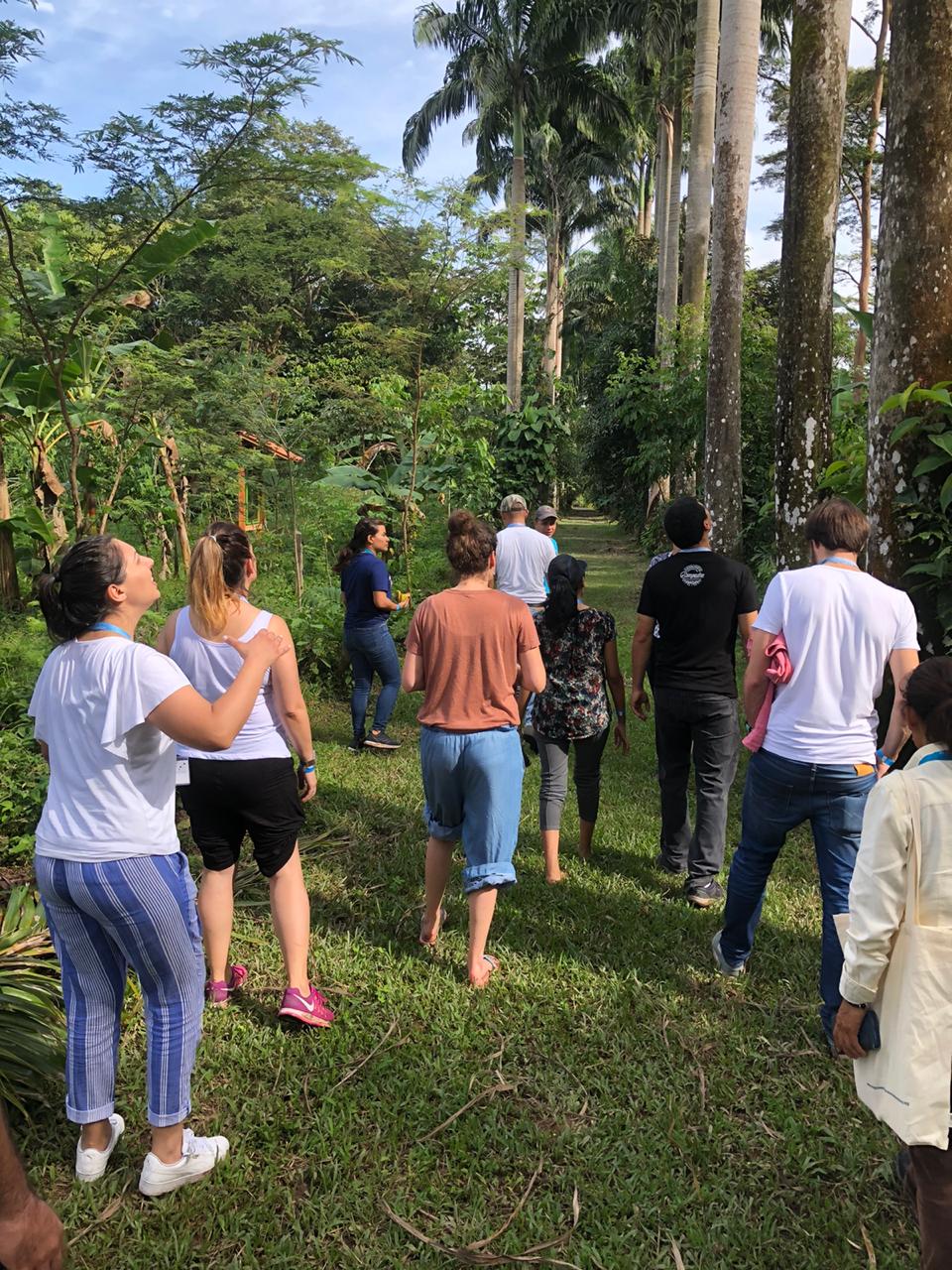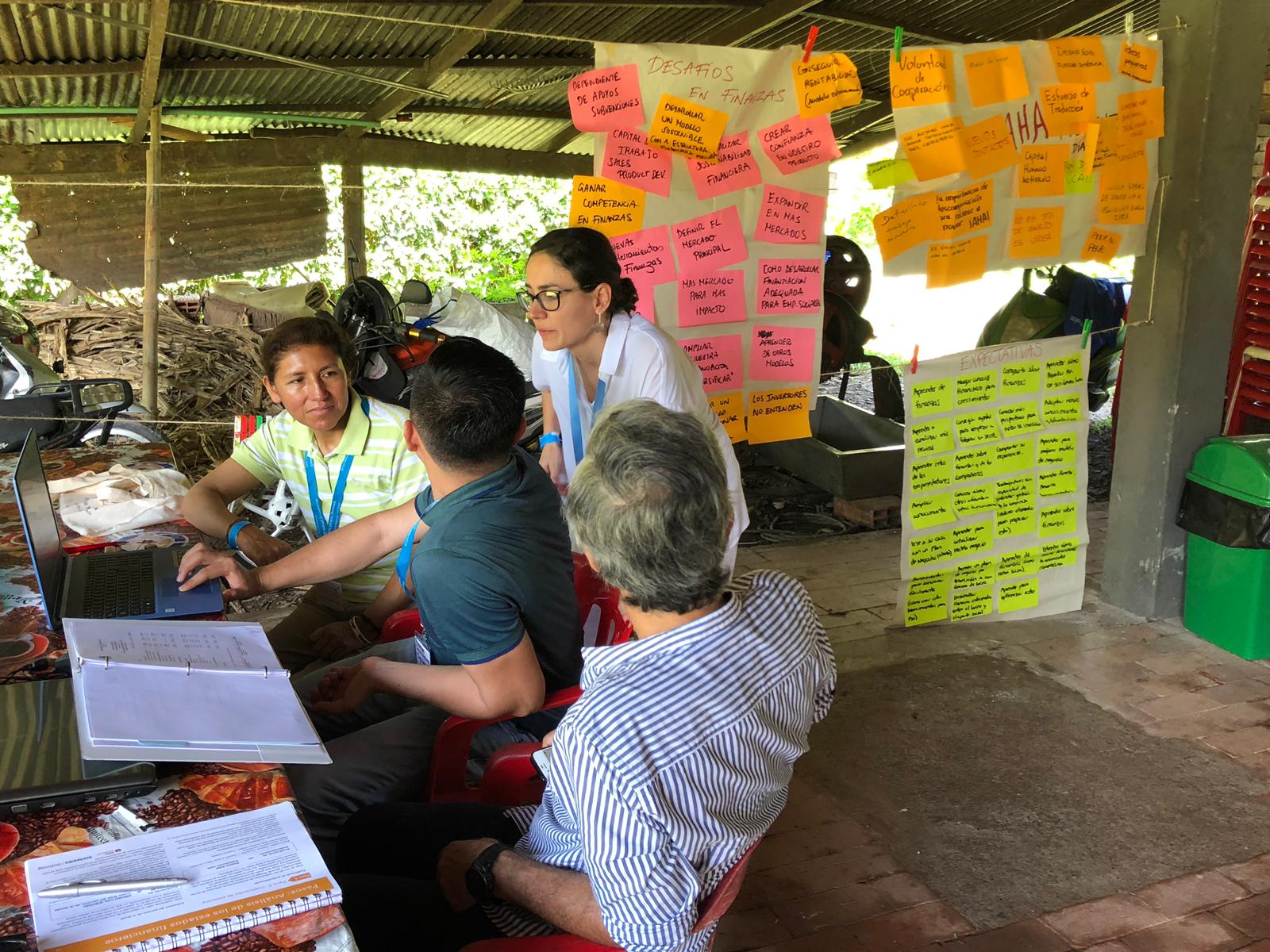“No hablamos el mismo idioma” – How the language of finance and growth of SocEnts are interconnected

“Chévere” generally means “terrific, cool, awesome” in Spanish, but not everywhere. You won’t usually hear someone in Spain using the term “chévere” and you may find people in El Salvador using “chivo,” or “chiva” in Costa Rica, and “chido” in Mexico. You may have even ordered a hot dog in Guatemala using the same term. In Cuba, Puerto Rica, Venezuela, Colombia, and Ecuador, however, people will understand exactly what you are referring too.
 epNetwork members diving into the details to better understand finance as a way to grow their enterprise.
epNetwork members diving into the details to better understand finance as a way to grow their enterprise.
At the end of the day it’s all Spanish and though people come from the same background, they may not be able to universally understand each other. In German, my mother tongue, we have the idiom “Das kommt mir Spanisch vor” which means “something is not right here.” For Spanish speakers, it’s “esto está en chino,” while the English equivalent is “it’s all Greek to me,” famously used in Shakespeare’s Tragedy of Julius Cesar.
The feeling of “it’s all Greek to me” is how some of the participants of our regional #epOnsite training on finance for social entrepreneurs must have felt. The aim of the training, which is part of the learning & development activities within the empowering people. Network, was to equip social entrepreneurs with the tools to maneuver their business onto a path of growth. In fact, it seemed to me that we required them to learn a new language.
Activa, passiva, liquidity, debt, loans, income statements, patient capital, equity warrant, and derivates are all finance/accounting terms; I hold a Masters in Economics and I still get lost with these terms, let alone understand the concepts behind them. Besides having to learn the common language of finance, it’s also obligatory to learn the script of finance – Microsoft Excel.
Apart from the locality, our training reminded me of my early economics classes in University.
Location-wise, however, it was much different. La Cosmopolitana – a Colombian agro-eco center transformed from fields into a wonderful ranch featuring an incredible array of wildlife and plants – was home to this epOnsite. Everything happens in harmony with nature and is returned to the cycle of life: excrements are used as fertilizer for plants which serve as food sustenance for all other animals. Plants are not harvested as monocultures but live in symbiosis with the flora around them. Manager of La Cosmopolitana and guest-participant in this epOnsite, Roberto Rodriguez, and his team aim to educate future generations so they can treat their environment with respect and enjoy it in a sustainable way.
Situated among lush palm trees, tropical birds, and glistening lakes, it seemed odd to learn the language of the financial sector, yet, our current system requires impact-driven people like Roberto to learn this language. The profit margin of early-stage social entrepreneurs is seldom big enough to sustain their life or operations, mostly because they still have to experiment with their business concept or because they put too many resources into creating meaningful social benefit. However, they are stubborn. Too reluctant to move away from their impact goals, they aim to access other funding options, which makes them dependent on the financial system.
 epOnsite participants had the opportunity to explore the beautiful grounds at La Cosmopolitana.
epOnsite participants had the opportunity to explore the beautiful grounds at La Cosmopolitana.
 One of many group sessions at this epOnsite where the common language of finance brought epNetwork members together.
One of many group sessions at this epOnsite where the common language of finance brought epNetwork members together.
It’s easy to blame the financial system (which sometimes seems en vogue), but our experience is that people working with finances are comfortable communicating in their very own language. For all others, this means either spending time and effort to navigate through those terms or remain intimidated by them.
Working as a (social) business, it’s surely inevitable that one will use an analytical approach to understand their income and expenses; talking to entrepreneurs and/or inventors, you’ll realize they have at least some idea about their business concept and marketplace. They may not have it figured out completely, but it would ease their burden if we could let them focus on their impact goals instead of being tantalized with complicated financial concepts. It should be possible to meet halfway.
These social impact entrepreneurs are genuinely trying to impact all our lives and change the system into a better one. They are idealists that set out for a nearly unreachable goal, too determined to accept a situation that is harmful to the ones around them. That is why they were diligently learning in this wonderful setting at La Cosmopolitana with computers on their laps, adding numbers to their Excel spreadsheets.
After all, you don’t have to speak the same language to understand each other – as was seen with our Latin-American participants in Colombia.